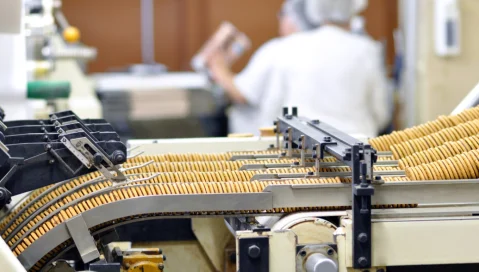Introduction
Private label specialty foods have acquired immense popularity over the last few years. With consumers looking for one-of-a-kind and customized food choices, private label food products have ended up being a go-to choice for several. In this short article, we will certainly explore the intricate process of private label food manufacturing, discovering the steps involved and the key players in the industry.
The Increase of Private Label Food Manufacturers in Australia
Australia has actually experienced a substantial surge secretive label food producers. With customers becoming much more aware regarding their nutritional preferences and requiring high-grade products, private label food manufacturing has actually emerged as a profitable service chance. These makers deal with numerous segments, consisting of exclusive tag cheese, snack food makers, and more.

Understanding Private Label Food Manufacturing
Private tag food manufacturing involves creating and creating food products for sellers or companies that then market these items under their own trademark name. This process allows sellers to provide special offerings to their clients without investing heavily in research and development or manufacturing infrastructure.
Key Steps Involved in Private Label Food Manufacturing
Step 1: Product Growth and Customization
Private label food producers work very closely with merchants to recognize their requirements and develop personalized products. This step entails conceptualizing sessions, marketing research, and dish solution. Private label specialized foods are developed to accommodate details consumer choices and nutritional needs.
Step 2: Sourcing Ingredients
Once the item specifications are completed, private label food producers resource top quality active ingredients from relied on distributors. They make sure that all active ingredients meet rigorous quality requirements and follow regulations set by appropriate authorities.
Step 3: Manufacturing and Packaging
After procuring the active ingredients, private label food production starts. The production facilities use modern devices and comply with rigorous health methods to generate secure and tasty food products. Product packaging is additionally an indispensable part of this step, making certain that the item continues to be fresh while appealing to consumers.
Step 4: Quality Assurance and Testing
Private label food manufacturers conduct extensive quality control checks at every phase of the production process. This includes examining the active ingredients, checking assembly line, and conducting sensory examinations. These procedures ensure that the end product meets the private label foods finest standards.
Step 5: Identifying and Compliance
Once the products are produced and top quality tested, private label food makers manage labeling and conformity. They guarantee that all info on the item labels is exact and abide by regulatory guidelines. This action is vital to offer customers with clear details concerning the product's materials and nutritional values.
Advantages of Private Label Food Manufacturing
Private label food production uses several benefits for both merchants and customers. Let's check out several of these benefits:
Customization: Merchants have the flexibility to produce distinct items customized to their target audience, permitting them to separate themselves from competitors.
Cost-effectiveness: Private label food makers offer cost-effective options by getting rid of the requirement for sellers to buy study, advancement, and manufacturing infrastructure.
Control over branding: Stores can build their brand photo by advertising private label foods under their very own name. This enables them to develop count on and loyalty amongst consumers.
Flexibility: Private label food manufacturing provides sellers with flexibility in terms of product offerings. They can conveniently adjust to changing consumer patterns and preferences.
Higher revenue margins: With reduced manufacturing prices, retailers can delight in higher revenue margins on private label food contrasted to branded alternatives.
Quality assurance: Private label food makers prioritize quality assurance measures, ensuring that stores obtain consistent and top quality products for their customers.
FAQs regarding Private Label Food Manufacturing
Q1: What is the duty of private label food manufacturers?
A1: Private label food producers play an essential duty in developing personalized foodstuff for retailers or businesses that market them under their very own brand name name.
Q2: Just how does private label food production benefit retailers?
A2: Private label food manufacturing enables retailers to supply unique items, build their brand photo, and enjoy greater revenue margins contrasted to branded alternatives.
Q3: Can private label food manufacturers deal with certain dietary preferences?
A3: Yes, private label food suppliers can establish items customized to specific nutritional needs and choices, consisting of gluten-free, vegan, or organic options.
Q4: Are there any kind of laws controling private label food manufacturing?
A4: Yes, private label food manufacturers must follow laws established by relevant authorities relating to ingredient sourcing, labeling, and high quality control.

Q5: Can private label food producers deal with large-scale production?
A5: Yes, private label food suppliers have the capacities to handle both small and massive manufacturing based on the retailer's requirements.
Q6: Exactly how can stores make sure the high quality of private label food products?
A6: Sellers must team up with respectable private label food producers who focus on strict quality control measures and have a record of delivering outstanding products.
Conclusion
Private label food manufacturing supplies a globe of opportunities for merchants looking to give distinct and personalized offerings to their customers. With a streamlined process entailing product growth, active ingredient sourcing, production, packaging, and quality control, exclusive label specialized foods have gained immense appeal. By partnering with trusted private label food suppliers in Australia or any type of various other area, sellers can develop their brand name identification while delighting in cost-effectiveness and flexibility in their item offerings. So why wait? Study the interesting globe of personal label foods today!